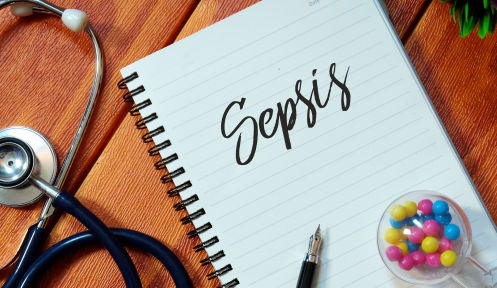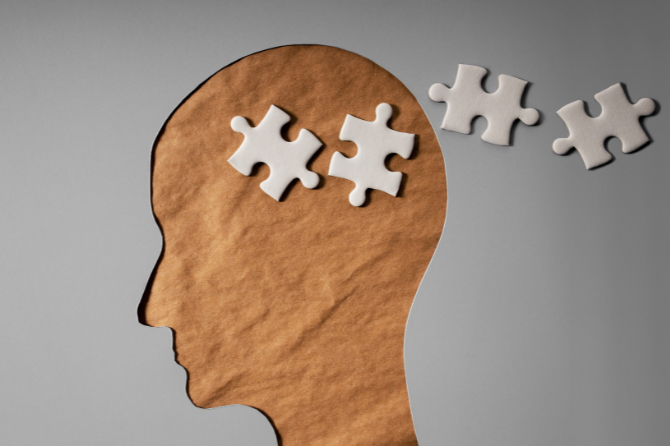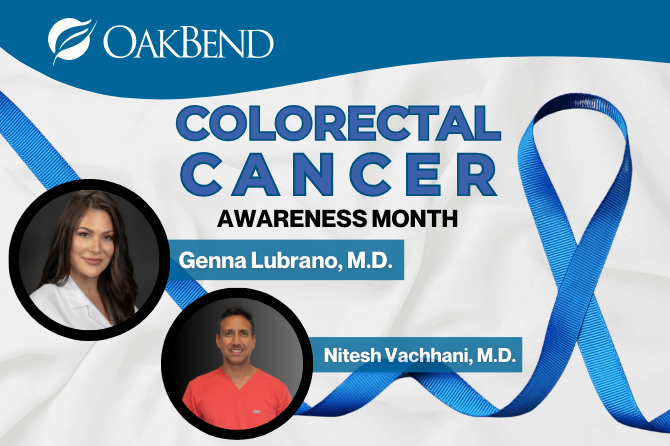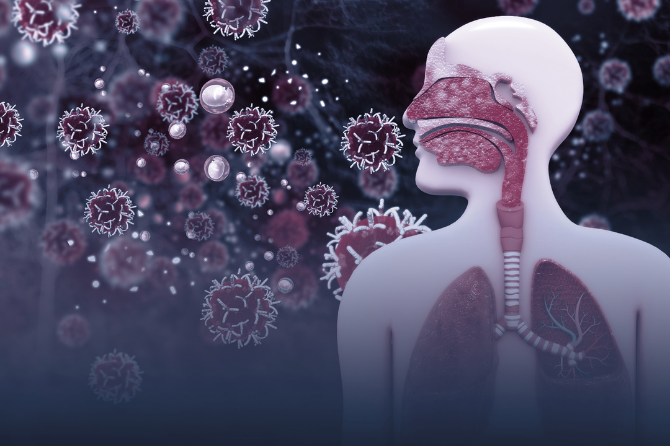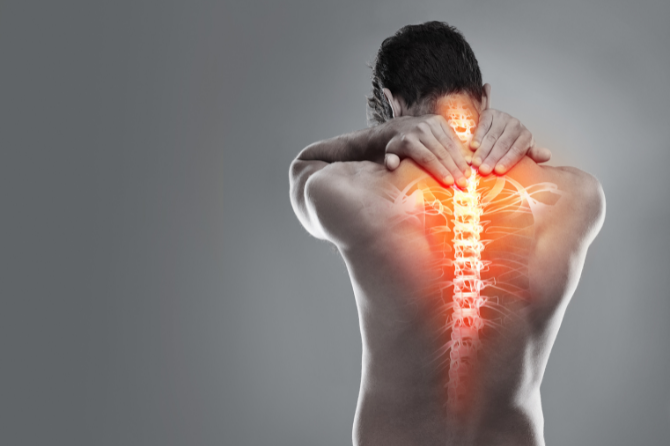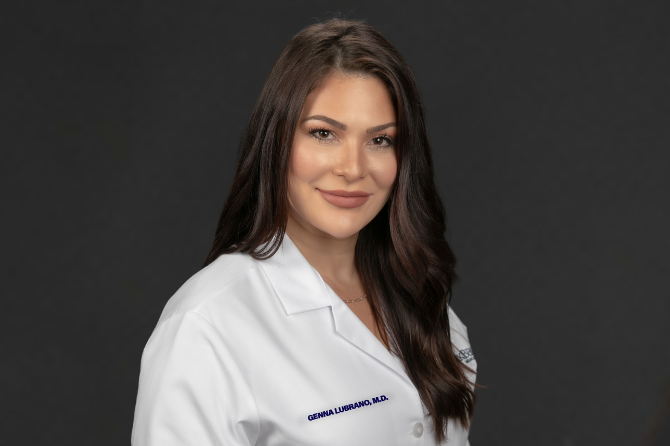- 1705 Jackson Street, Richmond, Texas
- 281-341-3000
- info@obmc.org
Health Education
- Home
- Health Education
- All
- Cardiac Clinic
- Community Health
- Diabetes
- Emergency Care
- Events
- Fitness
- Food & Nutrition
- General
- General Health
- Health Education
- Healthy Foods
- Heart Health
- Imaging/Women’s Imaging
- Life Style
- Mental Health
- Neurology & Stroke
- OBGYN
- Outpatient Surgery
- Pregnancy & Infant Health
- Primary Health Care
- Rehabilitation
- Rehabilitation and Therapy
- Treatment
- Uncategorized
- Women's Health
The Importance of Maternal Sepsis Week: What Every Mother Needs to Know
By Margaret Garcia, Director of Perinatal Services Maternal Sepsis Week is observed at our Fort Bend medical center, and nationwide from May 12-18th. It serves as a crucial opportunity to raise awareness about this pressing issue and mobilize efforts to prevent and manage maternal sepsis effectively. By shining a spotlight on maternal sepsis, we can
Celebrating Occupational Therapy Month with Insights from OakBend’s Expert, Kambri Wheeler
April marks a special time in the healthcare calendar—it’s Occupational Therapy Month. This is a period dedicated to recognizing the significant impact occupational therapists like Kambri Wheeler have on improving patients’ quality of life. At OakBend Medical Center, we take pride in the exceptional services provided by our professionals who ensure care and compassion are
Key Insights into Type 1 Diabetes: Understanding, Managing, and Living Well
Type 1 Diabetes (T1D) is a chronic condition that affects millions of people worldwide. Despite its prevalence, many misconceptions and uncertainties about the disease persist. This blog aims to shed light on some crucial aspects of T1D, from life expectancy to symptoms and treatment options, helping you understand and manage this condition effectively. Life Expectancy
Understanding Non-STEMI Heart Attacks: The Silent Threat
Non-ST elevation myocardial infarction (NSTEMI) is a type of heart attack that, while less immediately dramatic than its counterpart, STEMI, poses a significant risk and requires urgent medical attention. This blog post delves into the critical aspects of NSTEMI, aiming to equip you with the knowledge to recognize symptoms and understand the importance of seeking
Spring Allergies: Navigating the Season of Sneezes with OakBend Medical Center
As the icy grip of winter loosens, spring ushers in a season of renewal, with blooming flowers and budding trees painting our landscapes in vibrant colors. However, for many, this rejuvenation also marks the onset of seasonal allergies, turning what should be a time of enjoyment into a period of discomfort. At OakBend Medical Center,
Preventing Cognitive Decline: Your Blueprint for Maintaining Brain Health
In the journey of life, maintaining the strength and health of our brains is as crucial as physical fitness. As we navigate the complexities of our daily routines, the fear of cognitive decline looms for many. Yet, the question remains: Can we genuinely prevent or reverse this decline? OakBend Medical Center’s skilled nursing department offers
We Asked the Expert: Colorectal Cancer Awareness Month Advice from Dr. Nitesh Vachhani
March isn’t just any month—it’s Colorectal Cancer Awareness Month, a time dedicated to raising awareness about the importance of colorectal cancer screening and prevention. To shed light on this critical topic, we turned to Dr. Nitesh Vachhani, who provided valuable insights into understanding and preventing this disease. Why is Colon Cancer Referred to as a
Winning at Wellness: Your Super Bowl Guide to Healthy Celebrations
As the nation gears up for the Super Bowl, an event that captivates millions with thrilling sportsmanship and spectacular entertainment, OakBend Medical Center is here to ensure you celebrate this iconic American tradition without sidelining your health and wellness goals. From nutritious snacking to maintaining physical activity amidst the excitement, we’ve compiled expert advice to
Understanding Respiratory Infections: Symptoms, Treatment, and Prevention
Respiratory infections are common yet often misunderstood illnesses. In this comprehensive guide, we’ll explore different types of respiratory infections, their symptoms, treatment options, and duration. Plus, we’ll provide valuable insights into how you can get more information and assistance from OakBend Medical Center. What are 5 Respiratory Infections? Common Cold: Caused by various viruses, the
Shingles Vaccine Essentials – Who Qualifies and When to Get It
Shingles, a painful rash triggered by the varicella-zoster virus, demands attention. In this discussion, we’ll unravel the essentials of shingles and provide insights into the shingles vaccine. Vaccines, as Dr. Tracey Stammann wisely notes, “are always your friend. They are here to prevent you from becoming acutely ill. In case you do become sick, they
A Comprehensive Guide to Safe and Effective Stretching for Well-Being
As we dive into the significance of stretching, it’s the perfect time to explore this often overlooked practice in our daily lives. This blog is dedicated to promoting the importance of stretching for our overall well-being. Stretching is not merely a prelude to a workout or just for athletes and gym enthusiasts; it is a
National Influenza Vaccination Week: The 5 Things You Need to Know
Introduction: National Influenza Vaccination Week (NIVW) is an annual campaign that aims to promote the importance of flu vaccination. It serves as a reminder for individuals to get vaccinated and protect themselves against the flu. In this blog, we will explore key aspects of the 2023 flu vaccine, the best time to get a flu
A Comprehensive Guide for a Gluten-Free Diet
Introduction: November marks Gluten-Free Diet Awareness Month, a time dedicated to shedding light on the significance of adopting a gluten-free lifestyle. In this comprehensive guide, we’ll delve into the fundamentals of a gluten-free diet, its purpose, and its impact on various demographics, with a specific focus on seniors. Additionally, we’ll explore how embracing a gluten-free
What are the Differences Between Type 1 and Type 2 Diabetes?
Diabetes is a condition in which blood glucose levels are above normal. When an individual suffers from diabetes, their body either does not make enough insulin (the hormone that controls glucose) or the body can’t use insulin as well as it should. Diabetes varies in severity but can cause serious health complications, including organ failure,
When Should You See a Respiratory Therapist?
Introduction Breathing is an essential part of life, often taken for granted until it becomes a challenge. Whether you’re a premature infant with underdeveloped lungs, a young adult managing asthma, or an older individual coping with Chronic obstructive pulmonary disease (COPD), respiratory issues can affect people of all ages. Enter the unsung heroes of healthcare
Understanding the Importance of Primary Care in Your Health Journey
Introduction In the vast landscape of healthcare, primary care stands as the initial and often most vital point of contact for individuals seeking medical assistance. This blog delves into the significance of Primary Care Week, elucidates the multifaceted realm of primary care, explores why it is a cornerstone of healthcare, provides insights into the diverse
Empowering Women: Prioritizing Health and Fitness
Introduction National Women’s Health and Fitness Day, celebrated annually on the last Wednesday of September, shines a spotlight on the well-being of women across the globe. It’s a day dedicated to empowering women to take charge of their health and fitness, recognizing the unique challenges they face in maintaining a healthy and active lifestyle. In
Fall Prevention for the Elderly: A Comprehensive Guide to Safety and Well-Being
As we age, our risk of falling increases, but that doesn’t mean falls are an inevitable part of growing older. In this comprehensive guide, we’ll delve deep into the causes of frequent falls among the elderly, discuss common complications that can arise, and provide practical tips on how to prevent falls and maintain a safe,
Understanding and Preventing High Cholesterol: Your Path to Heart Health
Cholesterol Education Month is a crucial time to learn about cholesterol, its types, causes, symptoms, and, most importantly, how to prevent high cholesterol. In this comprehensive guide, we will delve into these topics to equip you with the knowledge you need to maintain a healthy heart. When is Cholesterol Education Month? Cholesterol Education Month is
Unlocking Relief: Physical Therapy for Back and Neck Pain
Back and neck pain can be a persistent and debilitating issue for many individuals. Whether it’s caused by poor posture, an injury, or the wear and tear of everyday life, finding relief is a top priority. Fortunately, physical therapy offers a holistic approach to managing and alleviating back and neck pain. In this comprehensive guide,
The Art and Science of Wound Care
Wounds, whether minor or severe, are a part of life. The process of wound healing is intricate and influenced by various factors. Based on national statistics, approximately 5 million Americans suffer from chronic wounds each year, with over a million new cases reported annually. Chronic wounds are those that resist healing or take an extended
The Importance of Scheduling Your Annual Well-Woman Exam
Maintaining optimal health is a priority for everyone, and as women, there’s a crucial step we should never overlook: the annual well-woman exam. This comprehensive health assessment is a cornerstone of preventive care, playing a pivotal role in ensuring our overall well-being. In this blog post, we’ll delve into the significance of scheduling an annual
What Are Medical Diagnostic Tests and How Do They Work?
What Are Diagnostic Tests? Chances are, anytime you’ve gone to the doctor’s office presenting symptoms of an illness or injury, your healthcare provider has requested that you undergo diagnostic testing of some sort. Medical diagnostic tests encompass a wide variety of physical examinations—both invasive and non-invasive—given by medical professionals to confirm the presence or absence
7 Ways our SIGNA™ Voyager MRI Machine Improves Patient Comfort
Are you or a loved one in need of an MRI? Look no further! OakBend is thrilled to announce the arrival of our newest cutting-edge addition – the SIGNA™ Voyager MRI from GE Healthcare! Get ready to experience the future of diagnostic imaging at our Jackson Street Campus in Richmond, TX. Why the SIGNA™ Voyager
Unmasking the Hidden Dangers: The Risks of Vaping on Cardiopulmonary Health
In recent years, vaping has gained popularity among people of all age groups, with many believing it to be a safer alternative to traditional smoking. However, the reality behind those sweet-smelling clouds is far from harmless, especially when it comes to cardiopulmonary health. As a nonprofit hospital dedicated to the well-being of our community, OakBend
Navigating Menopause with Confidence: Expert Tips from Dr. Kelcie Alexander
Menopause is a natural process in a woman’s life that signifies the end of reproductive capability. It is a stage that every woman goes through, and it comes with its fair share of challenges. Menopause can be overwhelming for some women as it brings about changes to the body and mind. Managing Menopause Symptoms for
A Weight Loss Success Story: Dr. Reilly’s Expertise in Laparoscopic Longitudinal Sleeve Gastrectomy
At OakBend, we are dedicated to transforming lives and helping our patients achieve their health goals. Today, we would like to share an inspiring patient story that highlights the remarkable success of one young gentleman who embarked on a weight loss journey under the care of Dr. Christopher Reilly, our esteemed general surgeon. With the
The Role of Sleep in Health and Well-being: Tips for a Restful Night
Do You Feel Sleepy? Sleep is a vital aspect of our overall health, yet it’s often overlooked or neglected in our busy lives. At OakBend, we understand the importance of good sleep and its impact on physical, mental, and emotional well-being. If you’re struggling to get a good night’s sleep, our Home Sleep Studies can
Expert General Surgeon, Dr. Genna Lubrano, Sheds Light on Detecting Gallstones and Hernias
Gallstones and hernias are two common medical conditions that can affect people of all ages and genders. While they may not always cause noticeable symptoms, it is essential to recognize their signs and seek medical attention if you suspect you may be experiencing either condition. Dr. Genna Lubrano, an expert general surgeon at OakBend, shares
The Power of Nutrition: Healthy Eating Habits for a Long and Vibrant Life
Good nutrition is the cornerstone of a healthy lifestyle, and at OakBend, we believe that everyone should have access to the tools and knowledge necessary to make informed dietary choices. Eating well not only helps maintain a healthy weight but also supports overall well-being by reducing the risk of chronic diseases and promoting mental health.
5 Essential Tips You Need to Know for Aging Loved Ones!
At OakBend, we understand the unique healthcare needs of seniors. That is why we are proud to announce the reopening of our Acute Care for the Elderly (ACE) Unit. Specially designed with the elderly in mind, our ACE Unit provides a unique care environment that promotes patient mobility, offers a home-like feel, and encourages family
Regain Control: The Power of Hand Therapy for Restoring Function and Mobility
Hand therapy plays a crucial role in restoring functionality and mobility to individuals with hand injuries or chronic conditions. Whether you have recently experienced a hand injury or are struggling with a long-standing condition, hand therapy can make a significant impact on your quality of life. In this article, we will delve into the world
The Importance of Having a Family Physician: How OakBend Medical Center’s Team Can Help You Stay Healthy
Having a family physician is an important part of maintaining your overall health and well-being. A family physician is a medical professional who provides comprehensive care for individuals and families of all ages, from newborns to the elderly. At OakBend Medical Center, we have a team of dedicated family physicians who are committed to providing
Taking Steps Toward Breastfeeding Success
August is National Breastfeeding Month, and nobody knows the importance of breastfeeding more than mothers. Breast milk is a nutritional powerhouse for infants and can provide babies with complete nutrition and protects both mothers and children against illnesses. Breastfeeding protects babies from ear infections and diarrhea, and breastfed babies are at lower risk for serious
Why You May Need a Regular Breast Ultrasound
It’s essential to stay on top of your yearly preventative care checkup, especially when it comes to breast cancer. By being proactive and getting an annual breast cancer screening, your doctor can check for early signs of breast cancer and get you the treatment you need quickly, increasing your chance of complete remission. But what
What is Cardiopulmonary Disease?
Heart disease is the leading cause of death worldwide, killing over 800,000 Americans across gender and racial lines each year—that’s one in every four deaths, or one person every 36 seconds. If you look to positions two and three on the World Health Organization’s list of leading causes of death globally, you’ll see that stroke
Do I Have a Sleep Disorder?
Do you have difficulty falling asleep? Problems breathing during sleep? Or general issues disrupting your sleep and wake cycle? Are you concerned these occurrences could be the sign of short-term insomnia, or perhaps something more serious? No matter the symptoms, it’s important to discover the underlying cause of your sleep problems. Especially if you’ve found
Endometriosis
Endometriosis affects about 11% of women of reproductive age, but many people don’t know what it is—and many women may not know that they have it. Endometriosis occurs when the lining of the uterus (called the “endometrium”) is present outside of the uterus. Most commonly, endometriosis occurs on the surrounding organs, like the fallopian tubes
What is Pancreatitis?
Take a quick guess as to which of the body’s many systems includes the pancreas. If you guessed the digestive system, you are right! The pancreas is an often-overlooked gland organ that has a key role in digesting our food and producing our body’s insulin and glucose control. The pancreas is located behind the stomach,
How Stress Affects Your Health
When we hear the word “stress,” we often think about being overworked, tense, angry or in the midst of any number of negative situations. Technically, stress is simply the body’s response to changes in our environment—and it can be a good thing. The term for positive stress in our lives, eustress, is a short-term type
The Small But Mighty Thyroid
The thyroid is a small but powerful gland in the body that is responsible for almost all of the body’s hormone functions. The thyroid controls the hormones that affect your breathing, heart rate, body temperature and digestion. This butterfly-shaped gland is located at the base of the throat in the front of the neck. Most
When Tonsils Cause Us Trouble
Located in our throats, tonsils are one of those parts of the body that go fairly unnoticed until something is wrong. These lumps of tissue are located in the back of the throat, one on each side. The tonsils are part of the lymphatic system of our bodies, the system that fights infection and keeps
Are You At Risk for Osteoporosis?
As we age, our bones and joints start to break down, a natural part of the aging process. We become weaker than we were before and more easily fatigued due to the stress that our bodies have been under for decades. However, some aging populations develop osteoporosis—a bone disease that occurs when the body loses
Six Most Common Types of Arthritis
Arthritis is a blanket term for the hundreds of different conditions that make up joint pain or joint disease. Arthritis is a very common condition, with more than 50 million American adults and 300,000 children developing some sort of the condition in their lifetimes. People of all ages, sexes and races can develop arthritis, but
Gastroparesis
Digestive disorders can be tricky to diagnose, because we have no way to “reset” our digestive systems. They’ve been operating since before we were born, turning nutrients and calories that we consume into essential nutrients and building blocks for our bodies. The digestive system may look simple from the outside—we eat food, it gets processed,
What To Eat While Breastfeeding
All new moms and breastfeeding moms know that providing the proper nutrition to your growing baby is extremely important. Receiving adequate nutrition in the first few years of life is essential for building strong bones, healthy immune systems and robust minds in babies and toddlers. Luckily, breastmilk is the gold standard of infant nutrition. This
Do You Really Need A Multivitamin?
On the back of any official nutrition label– below the federally required information about calories, fat, sodium and sugar– are a list of vitamins and minerals that the food contains, as well as their Daily Recommended Amounts. Vitamins and minerals are essential elements that our bodies require to develop and function. The more recognizable vitamins
Autoimmune Disorders
The human body’s immune system is a complex system of cells and organs that defend the body from germs and outside harm. When the body senses an intrusion, like cold and flu germs infiltrating the body, it makes antibodies—cells that attack the foreign intruder to destroy it—therefore healing the body from the inside out. The
There's More Than One Type of Testicular Cancer
Out of all the health issues that affect men annually, cancer is in the top ten. Prostate cancer is the most common cancer in American men, and almost 200,000 new cases are diagnosed annually and more than 30,000 men die from it each year. Annual physicals screen for this type of cancer so it can
Summer Skin Conditions
Temperatures are climbing this summer, and before we know it each day’s forecast will top 100 degrees. While we can’t do much about the temperature outside, our bodies have ways of keeping our internal temperatures regulated. The biggest organ in our bodies, our skin, may seem like simply a thing that keeps our skeletons in
Post-Traumatic Stress Disorder
When people hear the term post-traumatic stress disorder, they often think of war veterans, or service members in the military who have been in active combat. Post-traumatic stress disorder, or PTSD, is certainly common in fields like law enforcement or military service, but can happen to anyone. PTSD is a disorder that develops in some
Answers to Your Embarrassing Health Questions
We all turn to the internet from time to time to find out answers to questions that are on my mind. Thanks to the internet’s endless information, we usually find an answer. With the giant surge in people consulting “Dr. Google” for their health questions, sometimes they feel more comfortable turning to the internet with
Concussions
Accidents happen, and most of the time, a slight bump to the head is painful and inconvenient, but nothing to worry about. Usually, it’s just a matter of patching up any bumps and waiting out the pain and inconvenience. However, recent data shows that only one out of every nine concussions are reported across the
Do You Really Need a Gallbladder?
You’ve heard of the appendix, the organ in our bodies that resides in the lower right abdomen, and seems to serve no real purpose in the body. You’ve heard that even though this organ exists and functions within us, you can live normally without it, and if it bursts—you’re in for emergency surgery to remove
The Many Forms of ADHD
Children are naturally boisterous, but at what point does a short attention span and unruly behavior turn into something more serious? Nearly 10% of all American children between the ages of two and 17 have been diagnosed with a behavioral disorder like ADD ADHD (Attention Deficit and Hyperactivity Disorder.) While the condition may be popularized
Is The Keto Diet Heart-Healthy?
The ketogenic diet had been gaining popularity over the past few years within the dieting industry. What exactly is a ketogenic diet (or keto), and what are its pros and cons? Keto is a very high fat diet with low protein and carbohydrate. There are several variations of this diet, but its original variation has
Your Heart Health Made Easy
Let me begin by saying that this article is more metaphoric with less scientific verbatim. The goal is to help my audience understand, remember and utilize what I am about to say to improved their heart health. This analogy that I am about to give is not new. In fact, I have given it at
Natural Remedies: Foods for the Heart and Body
Heart attacks are defines as a blockage of blood flow to the heart muscle. It occurs when the heart muscle or part of the heart muscle does not receive enough blood flow. The more time that passes without blood flow to the heart, the greater the damage to the heart. Symptoms can vary between men
Understanding Migraines
We’ve all had a headache before, and usually we can move through our day with a few pain pills and some grit. Headaches can be caused by a number of things, including allergies and even stress. But there’s a different type of headache that is debilitating, and can be a sign of a much more
What is Crohn's Disease?
It’s estimated that over half a million people in the United States suffer from Crohn’s disease—an often debilitating disease of the digestive tract. The disease causes inflammation and irritation in the small intestine and top of large intestine, but in some cases can spread all the way from the mouth, throat, stomach, intestines and waste
What is Chronic Obstructive Pulmonary Disease (COPD)?
Chronic obstructive pulmonary disease (COPD) is a group of diseases that cause airflow blockage and breathing-related issues. Frequent coughing or wheezing is common, excess phlegm and mucus production, shortness of breath and trouble taking deep breaths. Almost 15 million Americans have been diagnosed with COPD, and even more Americans may be struggling with COPD and
How Diabetes Can Affect Your Feet
It’s generally known that people with diabetes often struggle with many other associated health problems in addition to diabetes. After all, problems with blood sugar can affect almost every area of your body, so diabetic patients must pay close attention to changes in their body and report to their physician immediately. You may think that
Breast Cancer: Myths vs. Facts
This year, about 40,000 women are expected to die from breast cancer. For women, breast cancer is the leading cause of cancer deaths in the United States, even though breast cancer death rates have been slowly decreasing since the late 1980s. It is the most commonly diagnosed cancer among women. Three million American women have
Early Warning Signs of Alzheimer's
Forgetfulness is a natural part of life, and a common symptom of aging. Memory can be affected by a variety of factors, including chronic stress, certain health conditions or even a lack of planning. However, sometimes adults are affected with something more– dementia and Alzheimer’s disease. Alzheimer’s disease is a type of dementia and is
What Is Atrial Fibrillation?
Over the course of an average lifespan, your heart will beat over 300 billion times. While the heart can be damaged in numerous ways throughout our lifetimes, it remains one of the muscles in our bodies that never stops functioning, pumping oxygen-rich blood into our entire bodies to fuel its many functions. So when something
-
Find a clinic near you
-
Contact Us Today!
-
Feel free to message us!

About Us
OakBend Medical Center
Jackson Street Hospital Campus
- 1705 Jackson Street
Richmond, Texas 77469

